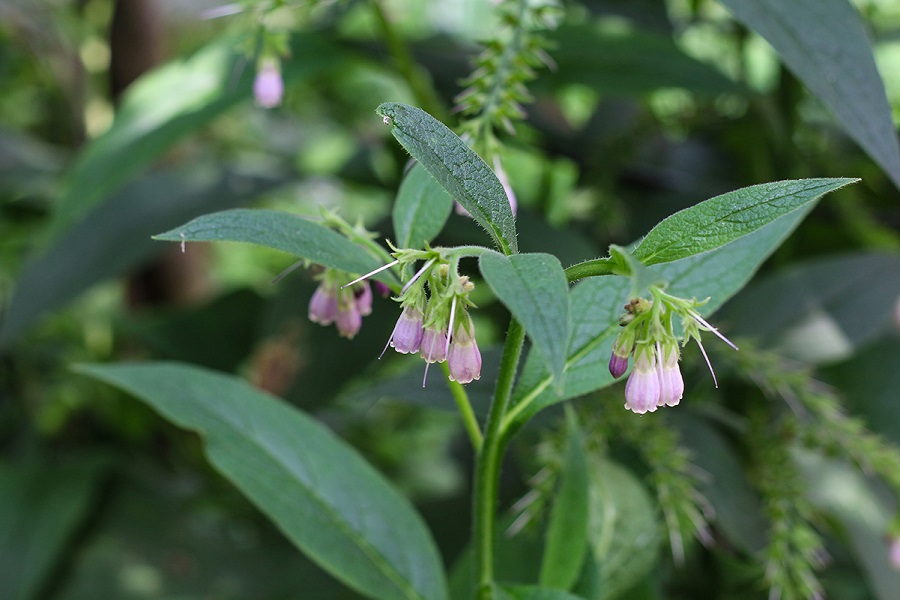 Sebastian Simpson-Bandidin
Sebastian Simpson-Bandidin

Support the soil: How and Why
The most diverse ecosystems on earth are found in healthy soil. Susannah Hall explains how crucial this ecosystem is to growing healthy, nutrient-rich plants.
A host of tiny creatures inhabit the soil and most are too small to be seen with the naked eye. If we could see them, and had the patience and time to count them, we would discover that in a teaspoon of healthy soil there are more creatures than there are humans on earth. Together these creatures make up the ‘soil-food-web’ and it is the health of this web that determines the health of plants growing in the soil and the nutrients they have access to.
INVISIBLE WORLD
This strange and mostly invisible world of the soil-food-web is home to worms, slugs, wood lice, mites, algae, bacteria, fungi and lots of other creepy crawlies with peculiar names. Between them they break down rock into the particles we know as soil, excrete sticky substances that bind soil particles together, maintain the soil’s airways and if that wasn’t enough, they also improve moisture retention and recycle nutrients. Soil is also the place where dead things are eaten before they are digested and re-formed into nutrients that can feed new life. Worms, slugs and woodlice among others shred and digest this dead material before fungi and bacteria muscle in to finish the process.
SOILY SYMBIOSIS
Plants are a crucial part of the soil-food-web, and not just when they die. Alive they form relationships with bacteria and fungi who live in and around their roots. Together they form a symbiotic relationship; the plants create sugar through photosynthesis and at least 30% (and possibly up to 70%) of these sugars are shared through their roots, feeding the bacteria and fungi who return the favour by feeding the plants with soluble nutrients.Most of the plants we grow to eat live in harmony with these mycorrhizal fungi. The fungi extend the plant’s root zone as the hyphae (the fluffy bits) radiate out into the soil accessing both water and nutrients for the plant. The network that the plants and mycorrhizal fungi create forms an intelligent communication highway that works to distribute and share nutrients.
EVOLUTIONISE THE REVOLUTION
As gardeners we can support the soil-food-web in a variety of ways. However the gardening methods that we have developed over the last century have had a devastating effect on our ecosystem. The main way to have healthy plants is to maximise the health of the soil-food-web and implies a very different approach to growing our food.
It is still common practice when growing annual vegetables to dig over growing beds at the end of the season and even leave them bare over winter. Digging destroys these vital fungal networks and disrupts the entire soil-food-web while leaving the soil bare over winter exposes the habitat to the ravages of the cold weather.
SOIL SOILDERS
Instead of digging the soil over after you’ve harvested a crop try planting a green manure instead. This will help keep the soil covered with plants. You could even have a permanent green manure or living mulch and plant vegetables in between. Or, perhaps try a perennial clover that will have the added benefit of encouraging nitrogen-fixing bacteria for other plants growing in the same area. Leaving the clover (or other green manures) to flower would also provide nectar for bees and other insects.
An alternative to a living mulch is to cover any bare soil with a mulch of materials that will essentially compost down on the surface of the soil, insulating the soil-food-web in the process. To do this, lay down wet cardboard on bare patches of soil and cover with well-rotted manure, compost or wood/bark chip.
Another approach that avoids digging is the method of planting ‘polycultures’ of perennial and annual plants. This means planting different crops together, for example, interspersing your courgettes or carrots between herbs and shrubs. If you focus on planting your perennials first, the mycorrhizal fungi will already be in place to support your newly planted annuals.
TO FEED YOUR PLANTS, FEED THE SOIL
It is well known that adding compost improves the structure of the soil. The dead matter is converted into rich nutrients in a multitude of ways by the creatures who call soil home. However, not all compost is created equal. Shop-bought compost has generally been sterilised to remove any pathogens. This helps to prevent disease spreading but kills most of the beneficial microbes. In contrast, home-made compost will be bursting with microbes that help to increase the health of the soil-food-web.
Putting the soil first transforms the traditional approach to feeding plants. Feeding the soil-food-web means avoiding using mineral fertilisers (the ones derived from oil) whose salts kill or inhibit creatures in the soil, particularly the bacteria and fungi. As an alternative you can make your own nutrient-rich plant teas: use nettles for a nitrogen-rich feed to support green growth; and comfrey to support flowering and fruiting. Seaweed extracts are also a favourite food for fungi.
It’s easy to forget the small and unseen but the millions of tiny creatures that live in a teaspoon of soil are just as important as the humans who eat them. In fact, we depend on them for nutritious food and a healthy diverse biosphere.
Check out www.capitalgrowth.org for upcoming courses
London Food Link: London Food Link brings together community food enterprises and projects that are working to make good food accessible to everyone in London to help create a healthy, sustainable and ethical food system for all.
Sustain
The Green House
244-254 Cambridge Heath Road
London E2 9DA
020 3559 6777
sustain@sustainweb.org
Sustain advocates food and agriculture policies and practices that enhance the health and welfare of people and animals, improve the working and living environment, promote equity and enrich society and culture.
© Sustain 2026
Registered charity (no. 1018643)
Data privacy & cookies
Icons by Icons8